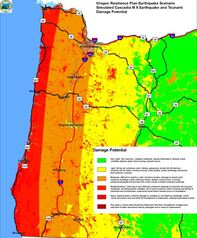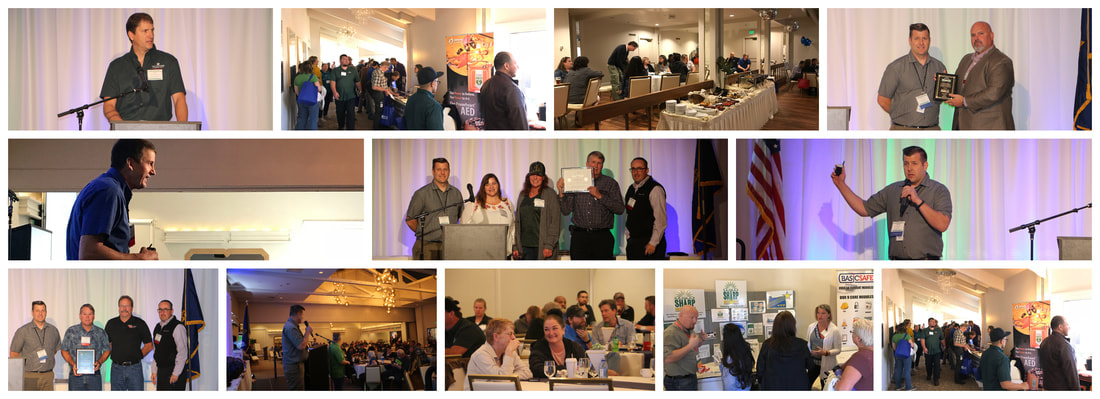
In 2010, geologists predicted a 37% chance of a magnitude 8.2+ event within 50 years.[i] Kenneth Murphy, director of FEMA’s Region X (Oregon, Washington, Idaho and Alaska), was quoted in 2015 saying, “Our operating assumption is that everything west of Interstate 5 will be toast.”[ii] Between the landslides, tsunamis, downed powerlines, damaged bridges, blocked roadways, broken gas mains, broken waterlines, and fires, the Pacific Northwest will be reeling. Concrete structures could be severely compromised structurally. Because the anticipated destruction is expected to stretch from Canada to Northern California, it could take quite some time before our Southern Oregon region will see much help. As bad as it may seem for us, the locations of greatest need are expected to be the larger population centers to the north. Because of this, we may be on our own for up to three months.
What you need before the earthquake:
- Water and water treatment capabilities
- Food that is easy to prepare and ways to prepare it (you might need months-worth)
- First aid kits
- Batteries and charging devices
- Communication devices, radios, and phones.
- Tents or makeshift shelters
- Lights, lanterns, and flashlights
- Tools that are easy to get to; crowbars, chainsaws, and demolition tools will be needed to help others
- A gas main wrench located at your gas main
- Full fuel tanks in your vehicles
- Bicycles may be a necessary means of travel for some time due to hazards, obstacles, and fuel shortages.
- Easily transportable kits containing supplies you might need for 72 hours
- Hardhats, dust masks, work gloves, and safety glasses or goggles
- A supply of any pharmaceuticals that you need
- Anchor any household items that could tip or fall
- You may need to decide ahead of time how much you will be able to help your neighbors in the event of an emergency
What you need during an earthquake:
- A place where you will not be injured by falling objects
- Be ready for jarring aftershocks
What you need to do after an earthquake:
- You may need to dig yourself or others out of a mess
- Make sure people are okay and treat any injured
- Be aware that buildings that may appear to be structurally sound may not be
- Evaluate communication options you still have: radio, phone, satellite, etc.
- Turn off any gas to your property
- You may need to find out which roadways remain open. Many roadways will have fallen trees and powerlines. Some bridges may also be severely damaged
- Monitor emergency radio information
- Be prepared to evacuate your area for any number of reasons
If 2020 has taught us anything, it has shown us that our safety is, first and foremost, our own responsibility. Preparation in advance can help ensure survival for you and those you care about in the event of a natural disaster.
David Hanson, CSP
[i] “Odds are 1-in-3 that a huge quake will hit Northwest in next 50 years.” Oregon State University. 24 May 2010
[ii] Schulz, Kathryn (20 July 2015). “The Really Big One.” The New Yorker.
 RSS Feed
RSS Feed
